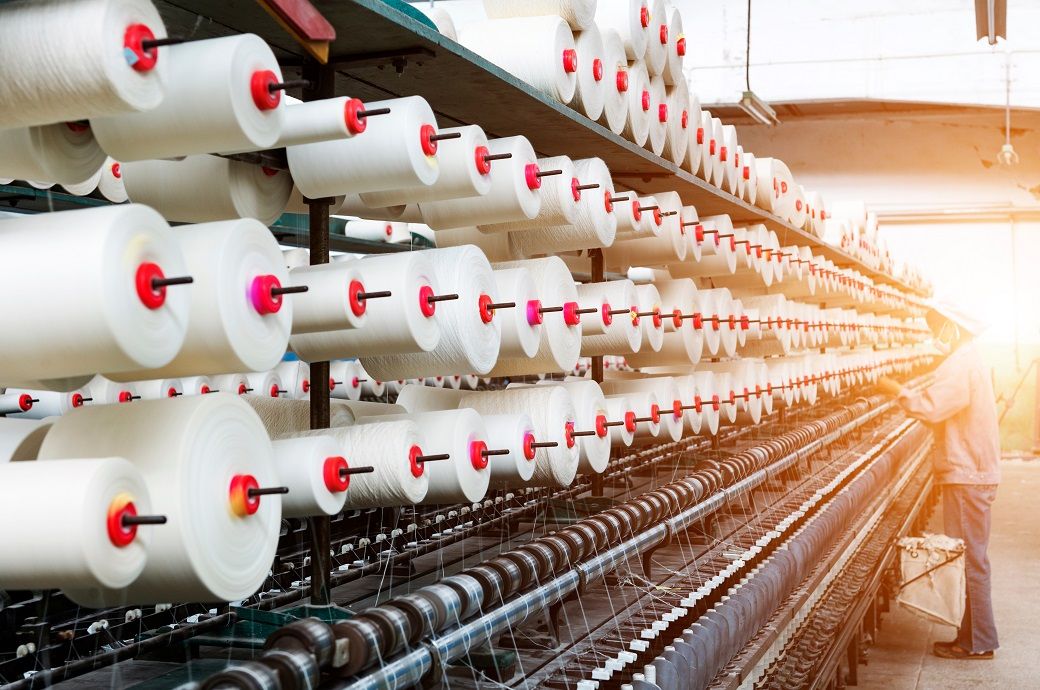
The Ludhiana market saw lower demand and stable cotton yarn prices. Trading activity was limited on the last day of the current fiscal. A trader from the Ludhiana market told Fibre2Fashion, “Buyers were not keen on new deals. They are likely to return to the market in the coming weeks if demand from the downstream industry improves. The market was more concerned about international developments affecting cotton yarn demand. The US’ reciprocal tariff threat and restrictions on Indian yarn imports are dampening market sentiment.”
In Ludhiana, 30 count cotton combed yarn was sold at ₹260-270 (approximately $3.04-3.16) per kg (inclusive of GST); 20 and 25 count combed yarn were traded at ₹250-260 (approximately $2.92-3.04) per kg and ₹255-265 (approximately $2.98-3.10) per kg, respectively; and carded yarn of 30 count was noted at ₹240-245 (approximately $2.81-2.86) per kg today, according to trade sources.
The Delhi market also reported unchanged cotton yarn prices, with weaker demand noted on Monday. According to market sources, cotton yarn demand is unlikely to pick up until there is an improvement in garment and other textile product purchases. Ongoing tariff threats from the US are creating uncertainty across the textile value chain.
In Delhi, 30 count combed knitting yarn was traded at ₹259-260 (approximately $3.03-3.04) per kg (GST extra), 40 count combed at ₹284-285 (approximately $3.32-3.34) per kg, 30 count carded at ₹233-235 (approximately $2.72-2.75) per kg, and 40 count carded at ₹258-260 (approximately $3.02-3.04) per kg today.
Recycled yarn and raw material prices also remained stable in Panipat, India’s home textile hub. According to market sources, trading of recycled yarn was limited on Monday. However, demand for home furnishing products may improve in the coming weeks, as rising temperatures are expected to boost demand for items such as bed sheets.
In Panipat, 10s recycled PC yarn (Grey) was traded at ₹75-78 (approximately $0.88-0.91) per kg (GST paid). Other varieties and counts were noted at 10s recycled PC yarn (Black) at ₹52-55 (approximately $0.61-0.64) per kg, 20s recycled PC yarn (Grey) at ₹95-99 (approximately $1.11-1.16) per kg and 30s recycled PC yarn (Grey) at ₹128-134 (approximately $1.50-1.57) per kg. Cotton comber prices were noted at ₹103-106 (approximately $1.20-1.24) per kg and recycled polyester fibre (PET bottle fibre) at ₹80-82 (approximately $0.94-0.96) per kg today.
In north India, cotton prices held steady after gains late last week. The natural fibre had risen by ₹20–25 per maund of 37.2 kg over the past few days but traded stable today at previous closing levels. Traders explained that, being the last day of the current fiscal 2024–25 (April–March), both buyers and sellers were focused on closing their books and accounts. Cotton arrivals also declined in north India today. Market experts believe that prices are unlikely to fall further, as demand may improve next month amid declining arrivals.
Cotton arrivals in north India totalled 5,000 bales of 170 kg—comprising 200 bales in Punjab, 2,000 in Haryana, 2,000 in upper Rajasthan, and 800 in lower Rajasthan. In Punjab, cotton prices ranged from ₹5,550 to ₹5,560 (approximately $64.87–64.98) per maund of 37.2 kg. In Haryana, prices were ₹5,470 to ₹5,500 (approximately $63.93–64.28), while in upper Rajasthan, cotton was priced between ₹5,560 and ₹5,580 (approximately $64.98–65.22) per maund. In lower Rajasthan, prices ranged from ₹53,100 to ₹54,100 (approximately $620.62–632.31) per candy of 356 kg. Seed cotton was priced at ₹7,150–7,400 (approximately $83.57–84.49) per quintal of 100 kg.
ALCHEMPro News Desk (KUL)
Receive daily prices and market insights straight to your inbox. Subscribe to AlchemPro Weekly!